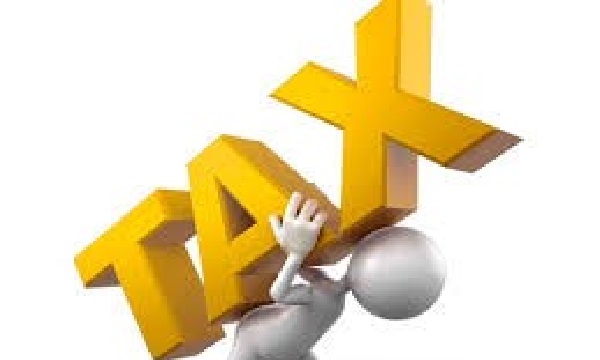
2024 elections: Tax reforms take center stage
As Ghana gears up for the 2024 elections, the two major political parties have laid out their visions for the country's economic future.
The New Patriotic Party (NPP) and the National Democratic Congress (NDC) have presented starkly different approaches to addressing Ghana's economic challenges, setting the stage for a heated debate on the best path forward for the nation.
While the Presidential candidate of the incumbent party, Dr Mahamudu Bawumia, has outlined a plan which is focused on accelerating economic growth, the candidate for the NDC, John Dramani Mahama, has outlined a plan that seeks to reset the economy and position it on the path of growth.
Although they both have their own plans towards reviving the economy, one thing that stands out is the fact that both candidates have placed tax reforms at the forefront of their economic agenda and are proposing some changes.
While Dr Bawumia is advocating a flat rate tax system inspired by Estonia, John Mahama proposes a series of VAT reforms designed to provide relief to both citizens and businesses.
With these contrasting approaches to tax policy, Ghanaian voters face a critical choice that could reshape the nation's fiscal landscape and economic future.
Accelerating economic growth
At the launch of his 2024 elections manifesto, Dr Bawumia said his government would accelerate economic growth to achieve an average of 6 per cent growth annually.
He said he would offer a one-time tax amnesty to individuals and corporations who have defaulted on their taxes, establish an SME Bank and a $100 million Fintech Fund.
The current Vice-President also intends to reform the VAT regime by reducing withholding tax on small-scale gold exports; abolishing the betting tax and incentivising start-ups with investment tax credits.
His plan emphasises public-private partnerships, digitalisation, and sector-specific growth strategies in agriculture, mining and tourism.
Reducing economic hardships
John Mahama, however, presented a contrasting vision a week later, prioritising the reduction of economic hardships and the restoration of macroeconomic stability.
His key proposals include scrapping taxes such as the E-levy, COVID-19 levy within his first 100 days in office.
The former President also aims to implement a comprehensive VAT reform to provide relief for households and businesses.
He also intends to reverse the decoupling of GETFund and NHIL from VAT; upwardly adjusting the VAT registration threshold to exempt micro and small businesses; and repealing the law imposing VAT on domestic electricity consumption.
He said the next NDC government would also implement an Economic Transformation Agenda focused on agriculture and value addition; review and enforce fiscal responsibility measures, restructure the Bank of Ghana, and investigate the NPP's economic policies, including the Gold-for-Oil initiative.
Tax reforms
In an interview with the Graphic Business, Economist and Lecturer at the Academic City University, Eugene Bawelle, said considering the current economic mess orchestrated largely by some underlining problems which were aggravated by COVID-19, anybody who wants to lead will have to outline an economic policy that generally has the ability to take the country out of the mess.
While both parties aim to address Ghana's economic challenges, their methods differ significantly.
The NPP's plan leans towards market-oriented reforms and tax incentives to stimulate growth, while the NDC focuses on scrapping some taxes; social interventions and government-led initiatives to alleviate immediate hardships.
Similarly, while the NPP emphasises digitalisation and sector-specific growth, the NDC prioritises infrastructure development and social welfare programmes.
Mr Bawelle said it was positive that both leading candidates acknowledged that the country’s current tax structure was not fit for purpose and therefore proposing news ways.
He, however, cautioned that considering the fiscal position of the country, if the implementation of the tax proposals does not go as planned this may aggravate the situation.
On the NDC’s proposal to scrap some taxes in the first 100 days, he said this could potentially hurt the country’s fiscal position.
He, however, added that considering the current circumstances of the economy, any new government coming in today should have a look at what they can do to alleviate the hardship on citizens.
He said the problem of the economy was not solely the inability to generate enough revenue but the inability to stay within expenditure as well.
“Although the NDC announced that they will scrap some taxes, they also announced some drastic changes on the expenditure side as well.
Some of the expenditure measures include cutting down on the number of ministers to 60, a move which is projected to save the country about GH₵63.4 million annually.
Bawelle said it therefore makes some sense to cut down on the ministers, make some savings and scrap some taxes to alleviate the economic hardships on citizens.
More details
On Bawumia’s plans to also scrap some taxes and reform the tax system, he said that was also a call in the right direction.
He added that the flat rate system might, however, not be appropriate for a country such as Ghana, as it would mean that both the rich and poor would pay the same tax rate.
“A flat rate tax system may not necessarily lead to increase in tax revenues. In countries like Estonia who use the flat rate system, tax compliance is very high and impossible to evade taxes.
“But in a country like Ghana where tax compliance is very low, what might work for Estonia will not work for us,” he said.
He said it was therefore necessary to wait for the details of how this system would be implemented in Ghana.